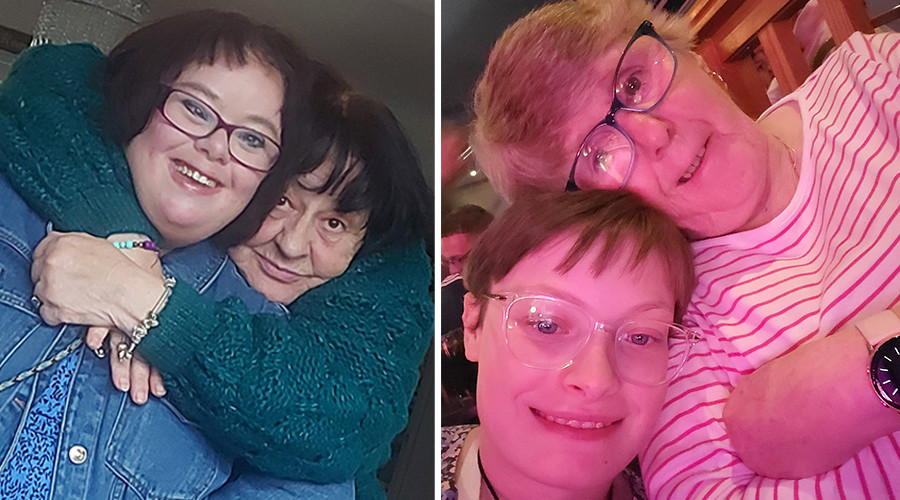Could you be a Shared Lives carer? Your questions answered
Shared Lives is a council-run, CQC-regulated service that matches carers with people who need support. That support can be living in the carer's home or elsewhere – whatever works best for each situation.
Do you think you have the care and love it takes to be a devoted carer to an adult who needs some support? If that sounds like you, and you’d like to know more, we asked the Shared Lives team to answer some of the most asked questions they hear from Wirral residents…
What is Shared Lives?
In a nutshell, it’s a little bit like foster care but for adults. Shared Lives is a unique service that supports people in a family setting. Shared Lives carers welcome adults with care and support needs into their own home, to be cared for as part of their family.
Unlike traditional health and social care settings such as supported living and residential care, Shared Lives supports people in the community, in a family home. The people supported by Shared Lives have an extended family that is truly flexible to their individual needs.
Mandy, a Shared Lives Carer from Bromborough, speaking about Hannah who she supports through the service, said: “She is just part of the family and one of my kids. We go to the pictures, bowling, holidays – normal family stuff you do day in day out. She has nieces and nephews, who are my grandchildren, it’s as if she’s always been with us.”
Who could I support as a Shared Lives carer?
Shared Lives is a very flexible service that can support people from the age of 16. The people we support thrive in their carefully matched families. Anyone with a support need can benefit from Shared Lives, regardless of their background. The only criteria we have is that the person is not typically in need of night support.
What sort of needs will I support people with?
Shared Lives helps people from all walks of life with varying care needs, aged 16+.
The people we support thrive in their carefully matched families. Anyone with a support need can benefit from Shared Lives, regardless of their background. The only criteria we have is that the person is not typically in need of night support.
People who could benefit from the service include (but are not limited to):
- people with a learning disability
- autistic people
- people who experience mental health issues
- people with a physical disability
- people with a sensory impairment
- older people
- people with dementia
- people transitioning from Children's services
- Mum/Dad and baby placements
- people who have additional needs who need support after domestic abuse
Sandra, who supported a mum and baby through Shared Lives, said: “She came and stayed with us and gave birth… She stayed until the baby was two and they moved out in February 2025 into their own home together.”
Are there different types of placements? Long or short?
The type of support that is offered is:
- Long term family placements - this means that the person supported will live with their Shared Lives family
- Short term placements - this is usually to support someone to get a place of their own.
- Respite holiday - this means that people who are supported by a Shared Lives carer or an unpaid carer (e.g. parent carers), can have respite holidays with Shared Lives families. This could be a day or up to two or three weeks.
- Day support – this could work for a person who requires day support, but traditional day support isn’t suitable for them. Day support within a small Shared Lives family could be a better fit.
Becoming a Shared Lives carer… how does it work? What is the process?
The only requirements to becoming a Shared Lives carer are a spare room and an open heart.
It doesn’t matter if you are single, a couple, single with children or a foster carer with children placed. Families come in all different shapes and sizes. When you apply to become a carer, we will arrange a visit to have an informal chat about the service and what you can offer. If everyone is happy to proceed, you will then be allocated a placement officer who will support you though the application process. During the process you will need to attend a ‘panel’, complete E-learning and, if you don’t have prior experience, you will also need to complete a care certificate. We also offer first aid and other specialist training if this is required. Your placement officer will be with you every step of the way.
What happens during the ‘panel’ process?
When all the paperwork and E-learning is completed, your placement officer will arrange for you to go to panel. Don’t worry, your placement officer will come with you to support you. On the day, you will meet with a panel of 3-5 people and your placement officer will give them a summary all about you. The panel members are other professionals in the field, sometimes a Shared Lives carer or a person we support. They will review your paperwork and ask you questions.
This is not a test; they just want to get to know you a little bit. Panel is more a scrutiny on the work completed by Shared Lives, not the carer. We would not send you to panel if we did not think you would be approved as a Shared Lives carer. You will find out on the day of the panel whether you have been approved as a Shared Lives carer.
The matching process – how does it work? how long does it take?
The matching process will include face-to-face meetings, a meal together and overnight stays. As no two people are the same, this process is tailored to individual needs. On average it takes around two to four weeks when a potential match has been identified however, people can be on our waiting list for much longer for various reasons, such as needing a ground floor room.
How much experience do I need to be a Shared Lives carer?
Just life experience. You will be trained and will have the support of your own placement officer.
Will I be paid to be a Shared Lives carer?
As a Shared Lives carer, you are self-employed. Due to the nature of the work, live in arrangement payments are not taxable under the qualifying carers relief. As a carer, you will get a fee from the council for supporting the individual. You will also get a contribution towards food and bills and rent payments from the person you support.
What if I have children at home, can I still be a Shared Lives carer?
Of course, families come in all different shapes and sizes. We also welcome pets.
What if I need time off from my caring role?
Shared Lives carers receive a respite allowance. We have respite carers who the people we support can stay with whilst you have a break.
Shared Lives carer Mandy needed some support when she was diagnosed with cancer.
Mandy said: “When I was poorly and I was really ill, Steff from the Shared Lives team was amazing, she would come and visit us, she brought me flowers. She reassured me that Hannah was going to be fine and she put in extra days where Sandra [a Shared Lives respite carer] could look after her.
“I felt supported, so I could support her. Everybody rallied round and we got through it together.”
Interested?
If you think you could benefit from support with a Shared Lives carer, or you might like to become one, you can:
- Find more information on the council’s website here.
- Contact the team by email at sharedlives@wirral.gov.uk.




